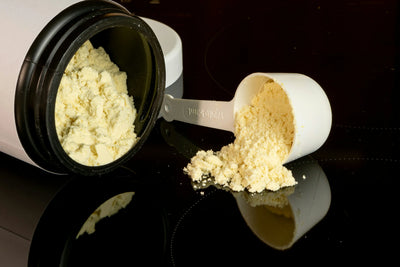Introduction

Why Do Dogs Itch?
1.Common Causes of Itching in Dogs
Itching in dogs can be caused by a variety of factors, making it essential for pet owners to identify the underlying cause to provide effective relief. Three primary causes of itching are environmental allergies, food allergies, and flea allergies.
Environmental Allergies are triggered by substances in the dog's surroundings. Common allergens include pollen, grass, dust mites, and mold spores. These allergens can cause seasonal itching, with symptoms such as sneezing, watery eyes, and excessive scratching.
Food Allergies occur when a dog's immune system reacts to specific ingredients in their diet. Common food allergens include chicken, beef, soy, and dairy. Dogs with food allergies may exhibit symptoms like chronic ear infections, digestive issues, and excessive paw licking. Identifying and eliminating the allergen through an elimination diet or hypoallergenic diet trial can help manage these allergies.
Flea Allergies are one of the most common causes of itching in dogs. Flea bites can cause intense itching, especially around the tail and hind legs. Flea Allergy Dermatitis (FAD) is a severe reaction to flea saliva, leading to inflammation and skin lesions. Regular flea prevention and treatment are crucial to avoid complications like secondary infections.
2.Underlying Health Conditions
Several underlying health conditions can also cause itching in dogs, including dermatitis, hot spots, and yeast infections.
Dermatitis is a general term for skin inflammation, which can be caused by various factors such as contact with irritants, infections, or allergies. Contact dermatitis, for example, occurs when a dog's skin comes into contact with an allergen like cleaning products or certain plants. This condition can lead to redness, rashes, and itching.
Hot Spots are localized areas of skin inflammation and infection caused by excessive scratching or licking. These painful, infected patches can develop rapidly and require prompt treatment to prevent further complications.
Yeast Infections are common in dogs with compromised immune systems or those prone to skin folds. Symptoms include foul-smelling, greasy skin, and hair loss. Yeast infections can be particularly problematic in areas like the ears and paws.
3.The Impact of Scratching
While scratching may provide temporary relief for dogs, it can exacerbate the problem. Excessive scratching can break the skin's protective barrier, leading to open wounds and secondary infections. Bacteria and yeast can then invade the damaged skin, causing further inflammation and itching. This cycle of itching and scratching can lead to chronic skin issues and significant discomfort for the dog.
Itching in dogs can be a complex issue with multiple causes and underlying health conditions. Environmental, food, and flea allergies, as well as dermatitis, hot spots, and yeast infections, can all contribute to a dog's discomfort. Pet owners should be vigilant about monitoring their dog's behavior and seeking veterinary advice if itching persists. Understanding the causes and effects of itching can help in providing timely and effective relief for dogs, improving their overall quality of life.
What Is a Dog Anti Itch Spray & How Does It Work?
1.Definition and Role of Anti-Itch Sprays
Anti-itch sprays are topical treatments specifically designed to relieve itching and soothe skin irritations. These sprays play a crucial role in managing skin conditions by reducing inflammation and providing immediate relief from discomfort. They are particularly useful for pets and humans suffering from various skin issues, including allergies, insect bites, and eczema.
2.Types of Anti-Itch Sprays
Anti-itch sprays come in various formulations, each tailored to address specific types of skin irritations and conditions:
(1)Medicated Sprays
Medicated sprays often contain active pharmaceutical ingredients to target specific skin conditions. For example, hydrocortisone is a common ingredient in many medicated sprays. It is a corticosteroid that reduces inflammation and itching by suppressing the body's immune response to allergens. Another example is chlorhexidine gluconate, which is used in antibacterial and antifungal sprays to treat skin infections.
(2)Natural Sprays
Natural sprays rely on plant-based ingredients to provide relief. These sprays are often preferred by those looking for non-toxic and chemical-free options. Ingredients like tea tree oil are known for their antibacterial and antifungal properties, making them effective against skin infections. Aloe vera is another popular natural ingredient, known for its soothing and anti-inflammatory effects.
(3)Moisturizing Sprays
Moisturizing sprays focus on hydrating the skin to alleviate dryness and irritation. Ingredients such as colloidal oatmeal are commonly used for their anti-inflammatory and moisturizing properties. These sprays are particularly beneficial for conditions like eczema and dermatitis, where dry skin is a significant factor.
(4)Antibacterial Sprays
Antibacterial sprays are designed to prevent and treat bacterial infections. They often contain ingredients like bacitracin or hypochlorous acid, which inhibit bacterial growth and soothe irritated skin. These sprays are useful for preventing secondary infections caused by excessive scratching or biting.
3.Key Active Ingredients and Their Functions
Several key ingredients are commonly found in anti-itch sprays, each with unique properties that contribute to relieving itching and reducing inflammation:
(1)Hydrocortisone
Hydrocortisone is a powerful anti-inflammatory agent that works by reducing the activity of the immune system in the affected area. It is effective in treating conditions like eczema, insect bites, and poison ivy. Hydrocortisone sprays are available in various strengths, with 1% being a common concentration for over-the-counter products.
(2)Aloe Vera
Aloe vera is known for its soothing and cooling effects on the skin. It helps reduce redness and inflammation while providing hydration. Aloe vera is often used in combination with other ingredients to enhance its effectiveness in relieving itching and irritation.
(3)Oatmeal
Colloidal oatmeal is finely ground oatmeal that forms a protective barrier on the skin, reducing irritation and providing moisture. It is particularly effective for conditions like eczema and dermatitis. Oatmeal-based sprays are gentle on the skin and suitable for long-term use.
(4)Tea Tree Oil
Tea tree oil is a natural antiseptic and antifungal agent. It is effective in treating skin conditions caused by bacteria, fungi, and yeast. Tea tree oil also has anti-inflammatory properties, making it a popular ingredient in natural anti-itch sprays.
Anti-itch sprays offer a versatile and effective solution for managing skin irritations and itching. With various types available, including medicated, natural, moisturizing, and antibacterial sprays, there is an option suitable for every skin condition. Key active ingredients like hydrocortisone, aloe vera, oatmeal, and tea tree oil provide targeted relief by reducing inflammation, soothing irritation, and preventing infections. Whether for pets or humans, anti-itch sprays can significantly improve comfort and quality of life.
Benefits of Using Dog Anti Itch Sprays
1.Fast Relief: Immediate Cooling and Soothing Effects
2.Easy Application: Convenient Spray Form
3.Reduces Scratching & Infection Risk: Preventing Aggravation of the Skin
4.Moisturizing & Healing: Repairing Dry and Damaged Skin
How to Choose the Best Anti Itch Spray for Your Dog
1.Factors to Consider: Ingredients, Scent, Brand Reputation, and Vet Recommendations
When selecting an anti-itch spray for pets or humans, several factors should be considered to ensure the product is both effective and safe. The ingredients are crucial, as they determine the spray's effectiveness and potential side effects. Look for sprays that contain soothing and anti-inflammatory ingredients like hydrocortisone for immediate relief, or natural ingredients such as aloe vera and colloidal oatmeal for long-term skin health. Additionally, consider the scent of the spray, as strong artificial fragrances can cause irritation. Opt for products with light, natural fragrances like lavender.
Brand reputation and vet recommendations are also important. Reputable brands often have a history of producing safe and effective products, while veterinarians can provide tailored advice based on specific needs. For example, brands like Eucerin are known for their anti-itch sprays that provide fast relief within 60 seconds. Consulting with a vet ensures that the chosen spray is appropriate for the individual's health conditions and lifestyle.

2.Differences Between Prescription and Over-the-Counter Options
Anti-itch sprays are available in both prescription and over-the-counter (OTC) forms, each with its own benefits and limitations. Prescription sprays often contain higher concentrations of active ingredients, such as stronger corticosteroids like hydrocortisone, which can provide more potent relief for severe itching. These sprays are typically used for chronic conditions or when OTC options have not been effective.
On the other hand, OTC sprays are more accessible and can be used for mild to moderate itching. They often contain ingredients like menthol or camphor for cooling effects, and antihistamines like diphenhydramine for reducing itching. OTC sprays are suitable for temporary relief from conditions like insect bites, poison ivy, or minor skin irritations. However, they may not be as effective for more severe or persistent conditions.
3.Safety Considerations: Avoiding Harmful Chemicals
Safety is a paramount concern when choosing an anti-itch spray. It is essential to avoid harmful chemicals that can cause irritation or adverse reactions. Common harmful ingredients to watch out for include alcohol, which can dry out the skin, parabens, which are preservatives linked to potential health risks, and artificial fragrances, which can cause allergic reactions. Instead, look for products that prioritize natural and non-toxic ingredients.
For example, alcohol is often used in sprays as a solvent but can be harsh on sensitive skin. Similarly, parabens are widely used in personal care products but have raised concerns about their potential impact on health. Opting for alcohol-free and paraben-free products ensures that the spray is gentle on the skin and reduces the risk of irritation.
Choosing the right anti-itch spray involves considering several factors, including the ingredients, scent, brand reputation, and veterinary recommendations. Understanding the differences between prescription and OTC options helps in selecting the appropriate product based on the severity of the condition. Additionally, prioritizing safety by avoiding harmful chemicals like alcohol, parabens, and artificial fragrances ensures that the spray is both effective and gentle on the skin. By carefully evaluating these factors, you can find an anti-itch spray that provides relief while maintaining skin health.
How to Properly Apply Dog Anti Itch Spray
1.Step-by-Step Guide: Cleaning, Applying, and Preventing Licking
(1)Cleaning the Affected Area
(2)Applying the Spray
(3)Preventing Licking
2.Tips for a Stress-Free Application Process
(1)Creating a Calm Environment
(2)Positive Reinforcement
(3)Gradual Desensitization
3.Recommended Frequency of Use and Expected Results
(1)Frequency of Use
(2)Expected Results
Additional Tips for Managing Itchy Skin in Dogs
1.Combining Anti-Itch Sprays with Other Treatments
(1)Omega-3 Supplements
Omega-3 fatty acids are essential nutrients that can significantly improve your dog's skin health. These supplements help reduce inflammation and provide a natural barrier against allergens, which can be particularly beneficial for dogs with chronic itching. Incorporating omega-3 supplements into your dog's diet can enhance the effectiveness of anti-itch sprays by addressing the underlying inflammation that causes itching.
(2)Medicated Shampoos
Medicated shampoos are specifically formulated to target skin conditions like dandruff, seborrheic dermatitis, and fungal infections. These shampoos contain active ingredients such as selenium sulfide, pyrithione zinc, and salicylic acid, which help break down excess keratin and reduce inflammation. Using a medicated shampoo in combination with anti-itch sprays can provide comprehensive relief by addressing both the surface irritation and deeper skin issues.
(3)Diet Changes
Diet plays a crucial role in managing skin conditions in dogs. Food allergies are a common cause of itching, with beef, chicken, milk products, soy, and eggs being frequent culprits. Switching to a hypoallergenic diet or a limited-ingredient diet can help identify and eliminate allergens. Additionally, incorporating omega-3 fatty acids and probiotics into your dog's diet can support overall skin health and reduce the frequency of itching episodes.
2.Importance of Regular Grooming and Parasite Prevention
(1)Regular Grooming
Regular grooming is essential for maintaining your dog's skin health. Weekly brushing helps control shedding, prevents tangles, and allows you to inspect your dog's skin for early signs of irritation or infection. Bathing with gentle, dog-safe shampoos rich in nutrients can also provide relief from itching while keeping the skin moisturized.
(2)Checking for Fleas, Ticks, and Skin Infections
Regularly checking your dog for fleas and ticks is crucial, especially if they spend a lot of time outdoors. Fleas can cause severe itching and lead to flea allergy dermatitis, while ticks can transmit dangerous diseases. Use a flea comb to remove fleas and flea dirt, and consider using topical treatments or oral medications to eliminate any remaining parasites. If you find ticks, remove them promptly using fine-tipped tweezers to avoid leaving any parts behind.
(3)Managing Skin Infections
Skin infections can exacerbate itching and lead to more severe conditions if left untreated. Bacterial infections often manifest with sores that may ooze and crust, while yeast infections can cause an unpleasant odor and greasy skin. If you suspect an infection, consult your veterinarian for a proper diagnosis and treatment plan, which may include medicated shampoos, dips, or oral medications.
3.When to Seek Veterinary Care
(1)Persistent Itching or Worsening Symptoms
If your dog's itching persists despite home treatments or if you notice worsening symptoms such as increased redness, swelling, or hair loss, it is crucial to seek veterinary care. Persistent itching can indicate underlying health issues like hormonal imbalances, endocrine disorders, or severe allergies. Your veterinarian may recommend blood tests, skin scrapings, or allergy testing to determine the root cause and provide targeted treatment.
(2)Signs of Severe Infections
If your dog shows signs of a severe infection, such as fever, lethargy, loss of appetite, or difficulty walking, contact your vet immediately. These symptoms can indicate a more serious condition that requires prompt medical attention.
Managing your dog's itching involves a multifaceted approach that combines anti-itch sprays with other treatments like omega-3 supplements, medicated shampoos, and diet changes. Regular grooming and parasite prevention are also essential for maintaining skin health and preventing infections. When in doubt, always consult your veterinarian for professional advice and treatment options. By taking a comprehensive approach, you can effectively manage your dog's itching and ensure their overall well-being.
Conclusion
Anti-itch sprays are designed to provide immediate relief from itching and irritation. Ingredients like menthol and camphor offer a cooling sensation that can quickly soothe inflamed skin. This rapid relief is crucial for reducing your dog's discomfort and preventing further skin damage caused by excessive scratching or biting.
The convenient spray form makes these products easy to use. Unlike creams or ointments, sprays allow for direct application without the mess and hassle. This ensures that the active ingredients reach the affected areas quickly and evenly, providing consistent relief.
By addressing the root causes of itching, anti-itch sprays help reduce scratching and the risk of infection. Excessive scratching can break the skin's protective barrier, leading to open wounds and secondary infections. Anti-itch sprays not only alleviate the urge to scratch but also contain antibacterial and antifungal agents that prevent infections.
Many anti-itch sprays contain skin-nourishing ingredients like aloe vera, colloidal oatmeal, and tea tree oil. These ingredients not only soothe the skin but also promote healing by moisturizing and reducing inflammation. Regular use can help restore your dog's skin health and prevent future outbreaks.
When selecting an anti-itch spray for your dog, it is essential to prioritize quality and safety. Look for products that are specifically formulated for pets and contain natural, non-toxic ingredients. Avoid sprays with harmful chemicals like alcohol, parabens, and artificial fragrances, which can cause further irritation.
Opt for reputable brands known for producing safe and effective products. Consulting with your veterinarian is also crucial, as they can recommend products tailored to your dog's specific needs and health conditions. For example, Eucerin is a well-known brand that offers anti-itch sprays with fast-acting relief.
 Despite using anti-itch sprays, if your dog's itching persists or worsens, it is essential to consult a vet. Persistent itching can indicate underlying health issues such as hormonal imbalances, severe allergies, or infections that require medical intervention. Your veterinarian may recommend additional treatments, such as medicated shampoos, omega-3 supplements, or even diet changes to address the root cause.
Despite using anti-itch sprays, if your dog's itching persists or worsens, it is essential to consult a vet. Persistent itching can indicate underlying health issues such as hormonal imbalances, severe allergies, or infections that require medical intervention. Your veterinarian may recommend additional treatments, such as medicated shampoos, omega-3 supplements, or even diet changes to address the root cause.
If your dog shows signs of severe infections, such as fever, lethargy, or loss of appetite, seek veterinary care immediately. These symptoms can indicate a more serious condition that requires prompt medical attention.
Does your dog struggle with itchy skin? Try a trusted anti-itch spray and share your experience below! By choosing high-quality, safe products and consulting with your veterinarian, you can effectively manage your dog's itching and improve their overall well-being. Your feedback and experiences can also help other pet owners find the best solutions for their furry friends.
Frequently Asked Questions
Q&A Section
Question 1: What is a dog anti itch spray?
Answer: A dog anti itch spray is a topical solution designed to relieve itching, soothe irritated skin, and reduce inflammation caused by allergies, dryness, or insect bites.
Question 2: How does dog anti itch spray work?
Answer: Most sprays contain soothing and anti-inflammatory ingredients like aloe vera, oatmeal, or hydrocortisone, which help calm irritation, moisturize the skin, and prevent excessive scratching.
Question 3: When should I use an anti itch spray on my dog?
Answer: Use it when your dog shows signs of frequent scratching, licking, or biting at their skin due to allergies, dry skin, insect bites, or minor skin irritations.
Question 4: Is dog anti itch spray safe for all dogs?
Answer: Most sprays are safe when used as directed, but some ingredients may not be suitable for puppies, pregnant dogs, or those with specific allergies. Always check the label and consult your vet if unsure.
Question 5: How often can I apply dog anti itch spray?
Answer: Application frequency varies by product, but most can be used 1-3 times daily. Follow the manufacturer’s instructions and monitor your dog’s skin for any reactions.





